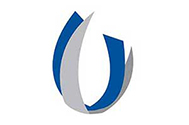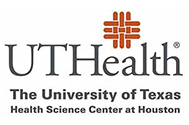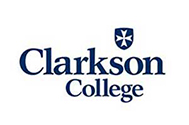5 Best Online RN to FNP Programs for 2025
Written By: Darby Faubion BSN, RN
 Are you a registered nurse who is considering pursuing an advanced practice career as an FNP? Getting as much information as possible about the available programs can help you make a decision that is best suited to help you accomplish your personal goals. In this article, we will discuss the best RN to FNP online programs and what enrolling in and completing one of these programs could mean for you. We will look at what courses are required, how much the program typically costs, and the pros and cons of an online RN to FNP program.
Are you a registered nurse who is considering pursuing an advanced practice career as an FNP? Getting as much information as possible about the available programs can help you make a decision that is best suited to help you accomplish your personal goals. In this article, we will discuss the best RN to FNP online programs and what enrolling in and completing one of these programs could mean for you. We will look at what courses are required, how much the program typically costs, and the pros and cons of an online RN to FNP program.
What Exactly is an RN to FNP Program?
An RN to FNP program is a graduate program that gives registered nurses the opportunity to pursue a degree in advanced practice nursing as a Family Nurse Practitioner.
Pros and Cons of Pursuing of RN to FNP Programs
As with any significant decision, there are pros and cons to consider before pursuing an online RN to FNP program. Weighing the pros and cons may allow you to think more clearly about whether this option is the best for you personally.
The pros of pursuing an RN to FNP online program include the following.
You may save money.
Typically, online FNP courses are less expensive than on-campus classes. In addition to reduced course costs, students who take online courses may have out-of-state tuition fees waived or reduced and may be able to use digital textbook editions rather than purchasing hard copies of books. Other expenses that may be reduced include the cost of gas for transportation to and from school, automobile maintenance, and parking fees.More flexible schedule.
Perhaps one of the most attractive perks of pursuing an FNP degree online is the flexibility students have to study when and where they want. This makes going back to school more appealing to prospective students who have jobs and family responsibilities.Help you become personally accountable.
If you are considering pursuing a career as a family nurse practitioner, you probably already realize the responsibility that comes with such a job. Being enrolled in an online FNP program means you must put forth the effort it takes to follow schedules and guidelines to meet the course requirements. While this may seem like a small thing, consider the kind of person you would like to care for you or your loved one.The cons of pursuing an online RN to FNP program include the following.
Must be a self-starter.
Although the idea of studying at your own pace and on your own schedule may sound like a big perk, it's essential to understand that success requires being deliberate about studies. Individuals who find it difficult to make schedules and stick to them without someone to hold them accountable or to set guidelines may find pursuing an FNP degree distantly more complicated than traditional on-campus education, which is typically more structured.You may have to set up your own clinicals.
While not all RN to FNP programs online (or any program, for that matter) require students to set up their own clinicals independently, many do. While your school of choice may have affiliations with clinical sites, it may be up to you to arrange your clinical schedule. Talk with your academic advisor/counselor as soon as you are accepted into a program and determine which clinical sites the school will approve. Then, set up a time to visit those facilities and get approval to use the site. Planning early on is important because, even if your proposed preceptor is willing, there will likely be an approval process that you must go through at the clinical site, and this process could be lengthy.Little to no contact with instructors.
The ability to work independently that an online program offers is appealing to many prospective students. However, it isn't easy to know what a person is thinking or feeling by only having email communication or by seeing messages on an online message board. If you are the type of person who likes to talk in-person or on the phone with others to understand what they are saying, you may find that the online RN to FNP course posts a bit of difficulty for you.Factors to Consider When Choosing the Right RN to FNP Online Program
If you are considering an RN to FNP degree, chances are you have several questions. Some critical factors to consider when choosing the right RN to FNP online program include the following.
1. Accreditation!
If you enroll in a program that is not accredited, you will likely be wasting both your money and your time. If an RN to FNP program is accredited, you can feel confident that it is a high-quality program and that you will have access to the training needed to practice effectively.A few national organizations that offer accreditation to RN to FNP programs include:
a. The Accreditation Commission for Education in Nursing (ACEN)
b. The Commission on Collegiate Nursing Education (CCNE)
You can also check the United States Department of Education’s website for a list of accrediting agencies.
2. Faculty Experience/Qualifications:
It is okay to ask for information about the instructors who will be overseeing your degree program. Most schools have a website that you can access that has faculty profiles. Additionally, before enrolling, you may consider visiting a campus if it is within traveling distance for you.3. What student services are offered?
Being enrolled in an online RN to FNP program should not mean that you must compromise or give up the benefit of having access to student advisors or other support staff. Schools that are concerned with student success will offer access to support services. A few things to ask are whether there is access to technical support for online students and if there are academic advisors who can help students who are struggling or need direction.4. Do you want to go to school part-time or full-time?
When deciding whether to attend school on a part-time or full-time basis, it's important to consider all your other commitments and responsibilities. For example, do you need to continue working while in school or have children to care for? Think about how much time you spend each week devoted to your other commitments and then decide how much time you can realistically devote to your education. If you are unsure which option is best for you, it may be good to start out part-time and give yourself a chance to transition into the role of being a student again. You can always take on extra courses in later semesters if you feel you are able to manage.5. Post-graduation success:
Schools typically offer access to data and information that shows students' success rate after graduation. You should look for statistics on where graduates are offered employment after completing the RN to FNP program. Are these places somewhere you are interested in working?How Long Do Online RN to FNP Programs Take to Complete?
The amount of time it takes to complete RN to MSN-FNP programs online varies from person to person, depending on whether one enters the FNP program as an Associate or BSN registered nurse. An Associate degree in nursing generally takes two to three years to complete, while a BSN degree may take four years or more.
After obtaining a degree and becoming licensed as a registered nurse, a nurse can then enroll in a Master of Science in Nursing (MSN) degree program. Prospective FNPs who enter an FNP program with an Associate level RN license can typically expect to spend an additional three years of study. BSN registered nurses usually take two to two and a half years to complete the program.
In addition to a prospective student's entry-level degree, part-time or full-time attendance can affect the length of time it takes to complete an FNP program. Also, if any coursework needs to be repeated or if a student does not maintain the recommended grade point average of his/her school, it may be necessary to spend longer in the program for successful completion.
How Much Do Online RN to FNP Programs Cost?
A student's current degree level influences the total cost for an RN to a family nurse practitioner online degree upon entry into the program. For example, the cost of becoming an associate degree registered nurse averages between $20,000 to $50,000. A BSN degree may cost between $70,000 to $105,000.
Tuition costs are between $200 to $650 per credit. This is an average cost of $425 per credit. An FNP program that requires 50 credit hours would, therefore, cost between $10,000 and $32,500, with an average cost of $21,250. Again, these numbers are approximate and may be more or less depending on your state of residence and whether you are required to pay out of state tuition fees.
Coursework
FNP program coursework is designed to challenge nurses to become exceptional practitioners. The courses you are required to take in an FNP program will vary depending on whether you enter the program as a registered nurse with an associate degree or a bachelor's degree in nursing.
After satisfying all the requirements for a BSN degree, you can enroll in a master's program, which usually consists of around 45 to 50 additional credit hours, depending on your school of choice.
Courses that are generally included in an FNP program include:
• Principles of Primary Care in Nursing
• Geriatric Care
• Pediatric Care
• Advanced Health Assessment
• Community Health
• Advanced Nursing Theory and Application
• Legalities of Advanced Nursing Practice
Clinical Training
FNP students are typically required to complete a minimum of 500 clinical hours as part of the training. Because each state sets its own guidelines for minimum clinical practice, it is essential to consult with the state board of nursing where you reside to make sure you get the required number of hours.
Admission Requirements for RN to FNP Online Programs
While each school will have its own admission criteria for any program, there are some general guidelines for any online RN to FNP program admission. Most schools require the following admission criteria to be met:
• Current, unencumbered RN license (Licensure should be maintained through the duration of the FNP program)
• Minimum one-year clinical experience as a registered nurse
• Official transcripts from all post-secondary education
• Cumulative GPA of 3.0 or higher in all undergraduate classes previously taken
• GPA 3.0 or higher in each science-related course
• BLS certification
It is important to note that this is a general list of guidelines for admission to an FNP program. When you have decided which schools interest you, it is a good idea to make an appointment to talk with an admissions counselor to make sure you meet the admission criteria for that school.
Following are the 5 Best Online RN to FNP Programs for 2025
1) Vanderbilt University - Nashville, TN

Admission requirements at Vanderbilt University may vary, depending on whether you hold an associate or bachelor’s degree in nursing. The admissions process involves the following:
Provide official transcripts of all post-secondary education, even if a degree was not earned
• Have a cumulative GPA of 3.0 or higher in all undergraduate classes
• Have a 3.0 GPA in each science-related course
• Provide three letters of professional or academic reference (At least one recommendation must come from a person who holds a master’s degree or higher.)
• Answer application questionnaire
• Current, unencumbered RN license
• At least one-year clinical experience as a registered nurse
Prospective students with an ASN degree must have at least 78 accredited semester hours or 110 accredited quarter hours. These hours must include:
○ 11 hours of Natural Science (Human Anatomy, Human Physiology, and Microbiology)
○ 9 hours of social science
○ 3 hours of statistics
○ 6 hours of humanities
○ 6 hours of English
○ Nutrition
○ Developmental Psychology
2) University of Mississippi Medical Center - Jackson, MS

The University of Mississippi Medical Center Family Nurse Practitioner program consists of 630 hours of mentorship with an advanced practice nurse or physician. Students must complete all clinical hours in the state of Mississippi. Therefore, if you are a distance-learning or out-of-state student, it is recommended that you talk with an admissions counselor and determine if your commute time to a Mississippi clinical site is something you can manage. The college reports that it offers flexible plans for students and considers each student's individual goals and their geographic location during their time enrolled.
Successful completion of the Family Nurse Practitioner program at the University of Mississippi Medical Center qualifies graduates to take the American Association of Nurse Practitioners (AANP) and the American Nurses Credential Center (ANCC) national examinations to obtain state advanced practice license as a nurse practitioner.
3) University of Texas Health Science Center-Houston - Houston, TX

For admission into the RN to FNP program at the University of Texas Health Science Center, candidates must meet the following requirements:
• Possess an active, unencumbered RN license
• Earned an Associate degree in nursing from an accredited nursing program
• One-year clinical experience as an RN
• Minimum 60 hours of nursing prerequisites for which the prospective student earned a cumulative grade point average of 3.0 or higher. (Science prerequisites of microbiology, anatomy and physiology I and II, and chemistry must have each received a 3.0 or higher GPA)
• Submit three professional/academic references and a professional curriculum vitae or resume'.
Other information about the FNP program at the University of Texas Health Science Center:
The FNP course offered by the University of Texas Health Science Center requires limited student presence on the school's campus. These limited times are for simulation and labs in some semesters. Although the University offers an RN to BSN program, students who enroll in the FNP do not have the option of an early exit from the program with a BSN degree. Instead, students who wish to withdraw from the FNP program and seek a BSN must correspond with the RN to BSN faculty to seek admission into that program. The RN to FNP program at the University of Texas Health Science Center is designed for full-time enrollment only.
4) Clarkson College - Omaha, NE

Admission requirements for Clarkson College RN to FNP program include the following: the student must have a cumulative grade point average of 3.0 or higher on a 4.0-grade scale, submission of official transcripts from any post-secondary educational institution, even if full credit was not earned, a BSN from a regionally accredited educational institution and from a nursing program that is accredited by the National League for Nursing Commission for Nursing Education Accreditation, the Accreditation Commission for Education in Nursing, or the Commission on Collegiate Nursing Education.
After successfully completing the RN to MSN program, students have the opportunity to study in a specialty area of nursing. Specialty study areas offered by Clarkson College include Family Nurse Practitioner, Psychiatric-Mental Health Nurse Practitioner, Adult Gerontology Acute Care Nurse Practitioner, Nursing Health Care Administration, and Nursing Education. These specialized courses require up to an additional 29 credit hours of study.
5) South University - Savannah, GA

South University has admissions representatives who will work with you individually to help you complete your admissions application. Also, finance counselors are available to discuss payment options for your education.
Admission requirements for South University’s online RN to FNP program include the following.
• Hold a current, unencumbered license to practice as a registered nurse (Students must maintain a current and unencumbered license as a registered nurse throughout the duration of the FNP program.)
• Provide official transcripts from an accredited nursing program with at least a 3.0 GPA
• Courses in advanced health assessment, advanced pathophysiology, and advanced pharmacology are required. If students have not already taken these courses, they will be required to take them as part of the FNP program at South University.
• Provide a resume' that lists relevant work, professional experience, and volunteer experience
• Three references; at least one reference must have a master's degree or higher.
Career Opportunities Post Completion of This Program
Opportunities for job placement for an FNP graduate are diverse. Family nurse practitioners work in various settings, including hospitals, ambulatory care clinics, outpatient clinics, and long-term care facilities, such as assisted living centers and nursing homes. Additionally, palliative care services and hospices, home health agencies, and private practices are other options for family nurse practitioners to practice.
Typically, FNPs work traditional day shift schedules. However, depending on the place of employment, some extended hours or holiday work may be required. Additionally, FNPs who work in private practices or after-hours clinics may work evening shifts or weekends.
Earning Potential
According to the Bureau of Labor Statistics (BLS), nurse practitioners earn an average salary of around $112,000 annually. Kentucky is reported to have an annual income for FNPs of approximately $99,560, which is the lowest paying state. California currently indicates the highest yearly salary for Family Nurse Practitioners of about $138,660.
Years of experience and the setting in which an FNP practices may also contribute to the rate of pay one can anticipate receiving.
Job Outlook
The job outlook for Family Nurse Practitioners is favorable. In fact, the Bureau of Labor Statistics estimates that more than 53,000 new family nurse practitioner jobs will be created by the year 2028. This 28% growth rate is faster than the average job growth in the United States currently.
The Bottom Line
If you are a registered nurse who wants to have a more hands-on approach and has a desire to contribute to patient care in a more active role, becoming a family nurse practitioner may be a good option. Career opportunities are ever-expanding for FNPs and have a projected growth rate that is expected to exceed the growth of recent years. The first step is to research the best RN to FNP online programs, like those mentioned in this article.
 Darby Faubion BSN, RN
Darby Faubion BSN, RN
Darby Faubion is a nurse and Allied Health educator with over twenty years' experience. She has assisted in developing curriculum for nursing programs and has instructed students at both community college and university levels. Because of her love of nursing education, Darby became a test-taking strategist and NCLEX prep coach and assists nursing graduates across the United States who are preparing to take the National Council Licensure Examination (NCLEX).